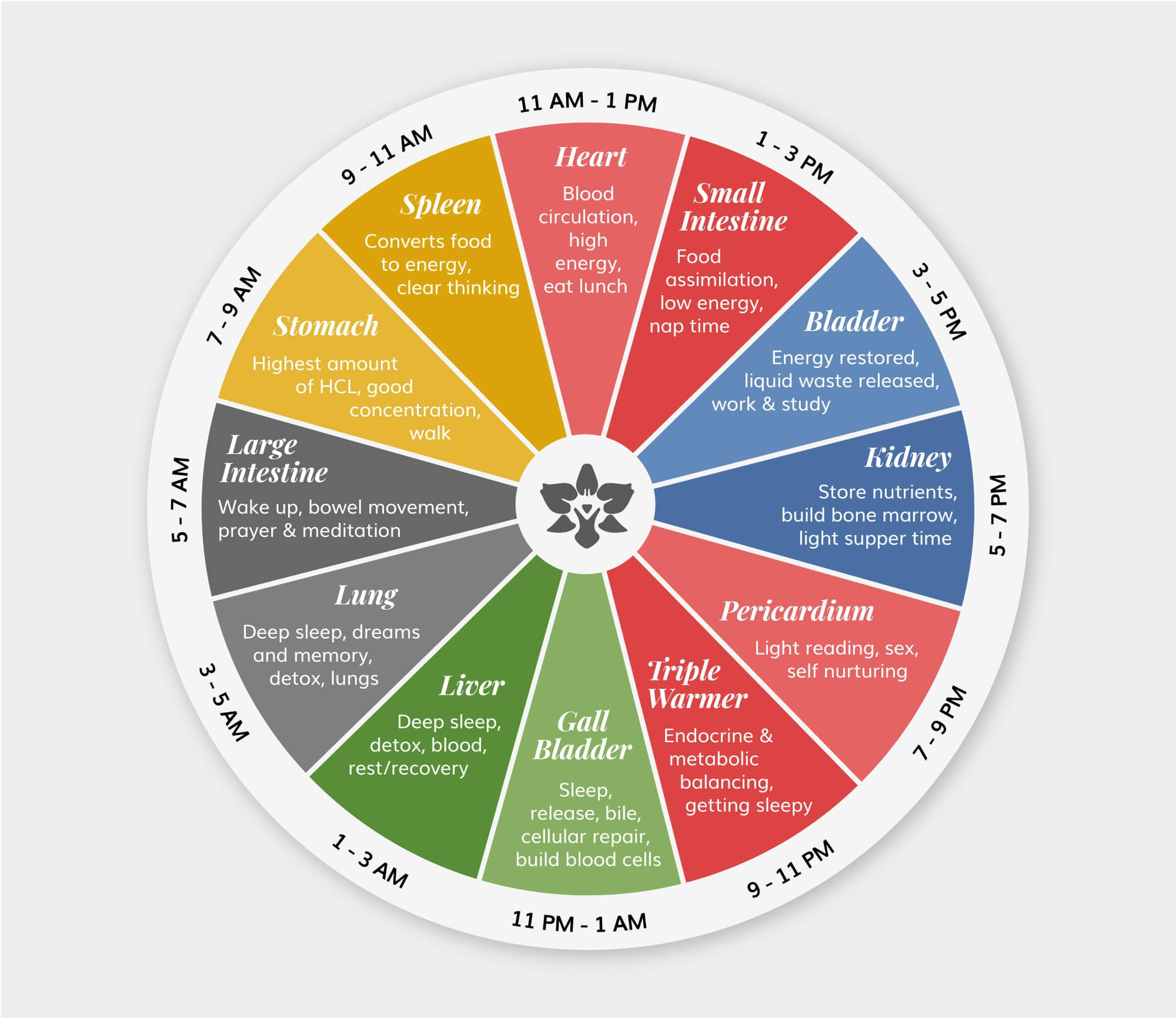The Surprising Reason Why My Intermittent Fasting Wasn’t Working
Watch my video or read the written version below!
I love the new year because it signifies new beginnings, second chances, and renewed motivation to adopt healthy habits. As someone dedicated to self-improvement, I always look forward to this time of the year.
To kick off the year, I decided to try intermittent fasting as a way to shed the extra holiday pounds. I was drawn to this approach because I wouldn’t have to deprive myself of my favorite foods. Instead, I could eat anything I wanted during an 8-hour window of my choosing.
I settled on a window between 10 am – 6 pm, but I often found myself too busy to eat until noon or even 1 pm. At first, I thought this was a good thing…
However, after a month of intermittent fasting, I was disappointed to see that I wasn’t losing weight.
That’s when I stumbled across an article about the Chinese medicine concept of body rhythms. My memory was jogged and I found myself recalling what I had learned years earlier. In all the excitement and bustle of starting a new teaching program, I had forgotten this very important information.
According to traditional Chinese medicine, our organs have a two-hour peak time of functioning within a 24-hour cycle. Between 7 am – 9 am, it’s STOMACH time. This is when our bodies produce the highest amount of hydrochloric acid, which is essential for breaking down fats and proteins and turning them into fuel for the next 24 hours.
By skipping breakfast, I missed this critical period for optimal digestion and nutrient absorption. I was robbing my body of the opportunity to burn fat and run efficiently for the next 24 hours.
Now, I’ve adjusted my intermittent fasting schedule to include eating the majority of my protein early in my day. Since making this change, I’ve noticed that I have more energy and I’m finally starting to lose weight slowly and steadily.
Even though intermittent fasting has become a popular weight loss method in recent years, weight loss is not the only benefit. It has been shown to have numerous health benefits, including improving insulin sensitivity, reducing inflammation, and promoting cellular repair, all of which raise overall physical and emotional vitality.
While many people have reported success with this approach, others have struggled. There can be other significant health factors involved when a person is not progressing. Chronic stress heightens levels of hormones such as cortisol, epinephrine, and norepinephrine that constitute the “fight or flight” response. An overabundance of these hormones causes our body’s to hang on to weight for survival. Getting blood work done to check hormone levels can provide helpful insights.
Of course, everyone’s body is different, and what works for one person may not work for another. Consulting with a natural health practitioner can prove beneficial also.
If weight loss is your goal, it’s worth experimenting with the timing of your eating window if you’re not getting the results you’re hoping for.
I’d love to hear your story about intermittent fasting or any other weight loss method you’ve had success with.
I’ll keep you posted about how I’m doing.
XO
Terri Kaus
2 thoughts on “The Surprising Reason Why My Intermittent Fasting Wasn’t Working”
Comments are closed.


My question for the organ timing has always been WHICH time zone? Are we considering Daylight Savings Time into this? Do these times factor in night shift workers and their body clocks? Just something to ponder.
Hi Kimberly, great question. It’s the time zone your body has been functioning in. Most people usually adjust after some time to a new sleep schedule (like night shifts) and daylight savings time. I actually have a free guide about adjusting quicker to daylight savings or to help with jet lag. You can expedite the process of resetting by working the particular reflexes that are related to the time of day you want your body to be in according to the Chinese clock. Rub the CNL points, hold the BNV points, and trace the meridians according to the new time you desire.